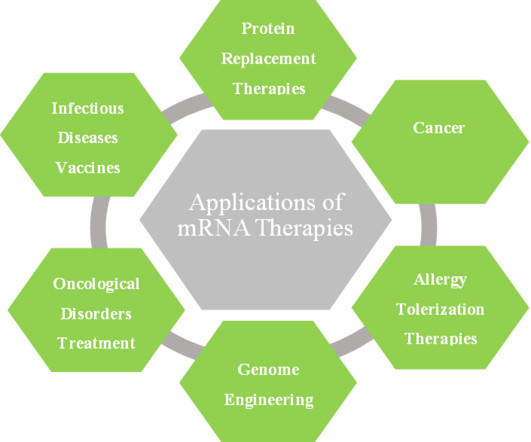Risk Assessment for use of Engineered Genetic Materials in Clinical Research
Advarra
MARCH 31, 2023
The use of engineered genetic materials in clinical trials is rapidly expanding, with potential applications for genetic vaccines, gene-modified cellular therapies, and gene therapies. Gene Delivery Systems Genetic material, in the form of DNA or RNA, does not easily enter cells without the aid of a delivery system.












Let's personalize your content